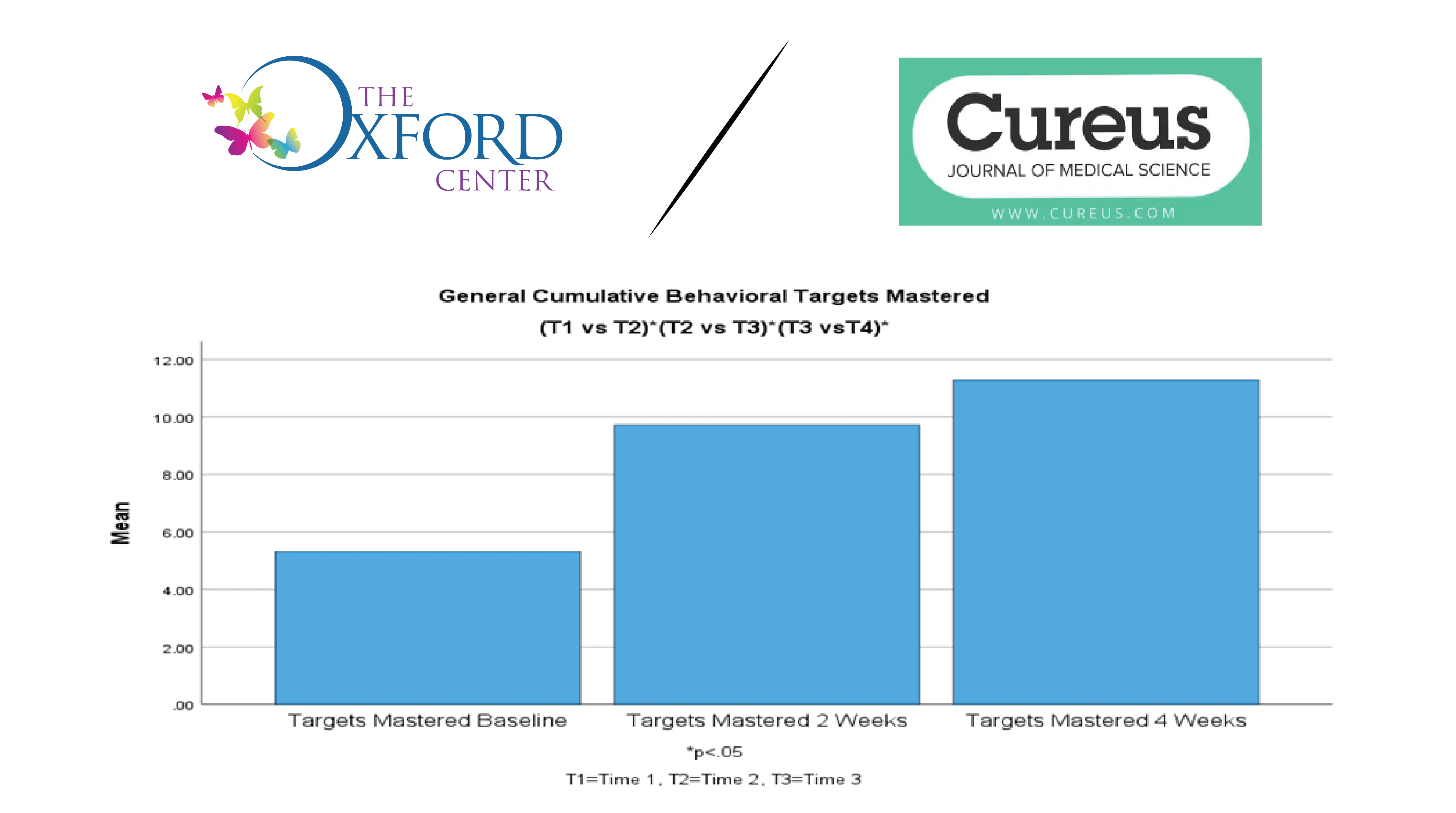Unlocking Potential: The Oxford Center Applauds the Impact of Applied Behavior Analysis for Autistic Children

At The Oxford Center, we are dedicated to promoting advancements in research and therapies that improve the lives of individuals with autism which is shown in our recent study titled “Impact of Applied Behavior Analysis on Autistic Children: Target Behaviors – A Replication Using Repeated Measures.” In this blog post, we’ll provide a summary of the key findings and their implications for the autism community.
The study, published in the Cureus Journal of Medicine, delves into the impact of Applied Behavior Analysis (ABA) for autistic children and specifically focuses on target behaviors. ABA is a widely recognized therapeutic approach that involves systematically applying behavioral principles to enhance socially significant behaviors and reduce problematic ones.
We conducted a replication study using repeated measures to validate and extend previous findings related to the efficacy of ABA interventions. The study included a diverse group of children with autism, and the researchers’ examined changes in target behaviors over time.
Key Findings:
- Positive Impact on Target Behaviors: The study reinforced the positive impact of ABA interventions on target behaviors in autistic children. Across the participants, improvements were observed, highlighting the effectiveness of ABA in addressing specific behaviors associated with autism.
- Individualized Approaches Matter: The article emphasized the importance of tailoring ABA interventions to individual needs. By recognizing the unique characteristics of each child, ABA practitioners can design interventions that are more likely to yield positive outcomes.
- Long-Term Benefits: The study also explored the sustainability of improvements over time. The findings suggested that ABA interventions can lead to lasting positive effects on target behaviors, underscoring the potential for long-term benefits for autistic individuals.
Implications:
The Oxford Center recognizes the significance of these findings for both the scientific community and families affected by autism. The positive impact of ABA on target behaviors offers hope and reinforces the importance of evidence-based interventions in the field of autism treatment.
Furthermore, the emphasis on individualized approaches aligns with The Oxford Center’s commitment to personalized and comprehensive care. Recognizing and addressing the unique needs of each individual is a cornerstone of our approach to supporting those with autism.
In conclusion, the study shows contributing valuable insights into the impact of ABA for autistic children’s target behaviors. This research not only adds to the growing body of evidence supporting ABA but also highlights the need for continued exploration of individualized approaches to better serve the diverse needs of the autism community. As advocates for progress in autism research and treatment, we eagerly anticipate further developments in this field.